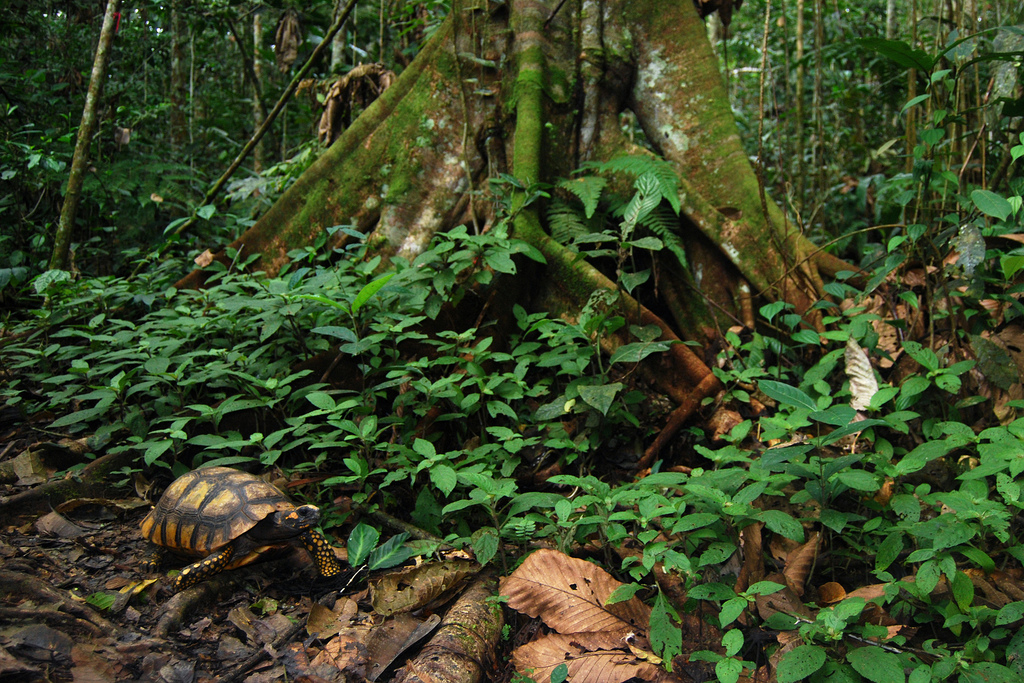Please note: Osher Rainforest will be closed for maintenance Jan. 14–16.
Science News
Life Finds a Way
November 16, 2010

By Anne Holden
Most of us know that global warming wreaks havoc on our planet. Climate scientists make dire predictions of what is in store for us, but some aren’t ready to throw in the towel just yet. In a study published in last week’s Science, an international team of climatologists predicts that not all our planet’s environments will suffer from the effects of global warming. In fact, some might be doing just fine.
Carlos Jaramillo, climatologist for the Smithsonian Tropical Research Institute (STRI), and his colleagues analyzed fossilized pollen dating to more than 50 million years ago. What makes this time frame so important? In one of the most dramatic warming events in Earth’s history, annual temperatures increased by three to five degrees Celsius in only 10,000 years, an unprecedented shift. Jaramillo and his team wanted to see if rainforests survived the heat wave during this period, known as the Paleocene-Eocene Thermal Maximum.
Upon analyzing the preserved pollen, they had expected to see reduced numbers and lower diversity of plant life. After all, how could the delicate plants and flowers that make up the rainforest endure such a remarkable rise in temperatures?
But the team’s observations showed that plants endured—and thrived. Their analysis actually revealed increased diversity of tropical plant life. New species of plants seemed to crop up everywhere. For example, the earliest ancestors of the passionflower and cacao plant appeared for the first time in history. If Earth really was hotter 50 million years ago, the rainforests seemed to relish in it.
Does this mean we should stop worrying about global warming? Hardly. Human impacts on our environment, including deforestation and pollution, combined with global warming, will still have unfortunate effects on most of Earth’s ecosystems. But we have learned that, even when faced with extreme temperatures, some of our most fragile environments will find a way to survive.
Anne Holden, a docent at the California Academy of Sciences, is a PhD trained genetic anthropologist and science writer living in San Francisco.
Creative Commons image by ggallice